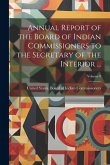"For more than two hundred years, members of the executive, legislative, and judicial branches of t he American government have had a hand in shaping the course of federal Indian policy, or the legal relationship between the American federal government and the now more than 570 federally recognized tribal governments in the United States. Since 1824, it has been the responsibility of the Bureau of Indian Affairs (called the United States Indian Service until 1947) to support, enact, and administer the executive orders, congressional legislation, an d Supreme Court rulings relevant to Indian Country. In that time, a handful of policies, shaped by various, sometimes competing, and always changing attitudes toward Indians in the United States, have determined how and to what ends the BIA has approached its mission. Policies of civilization, emigration, reservations, assimilation, acculturation, termination, and consumerism, have and continue to dictate the terms and means by which the federal government administers Indian affairs in fulfillment of its constitutional and treaty obligations. In "A Most Anonymous Position," David H. DeJong has written the first comprehensive history of federal Indian policy based on these policy strands and their enforcement by BIA commissioners and their assistant secretaries. BIA commissioners have always had enormous power to dictate the fate of Indians and their lands, a power that DeJong shows has been wielded in different ways and has changed with policy through the years"--
Hinweis: Dieser Artikel kann nur an eine deutsche Lieferadresse ausgeliefert werden.
Hinweis: Dieser Artikel kann nur an eine deutsche Lieferadresse ausgeliefert werden.








